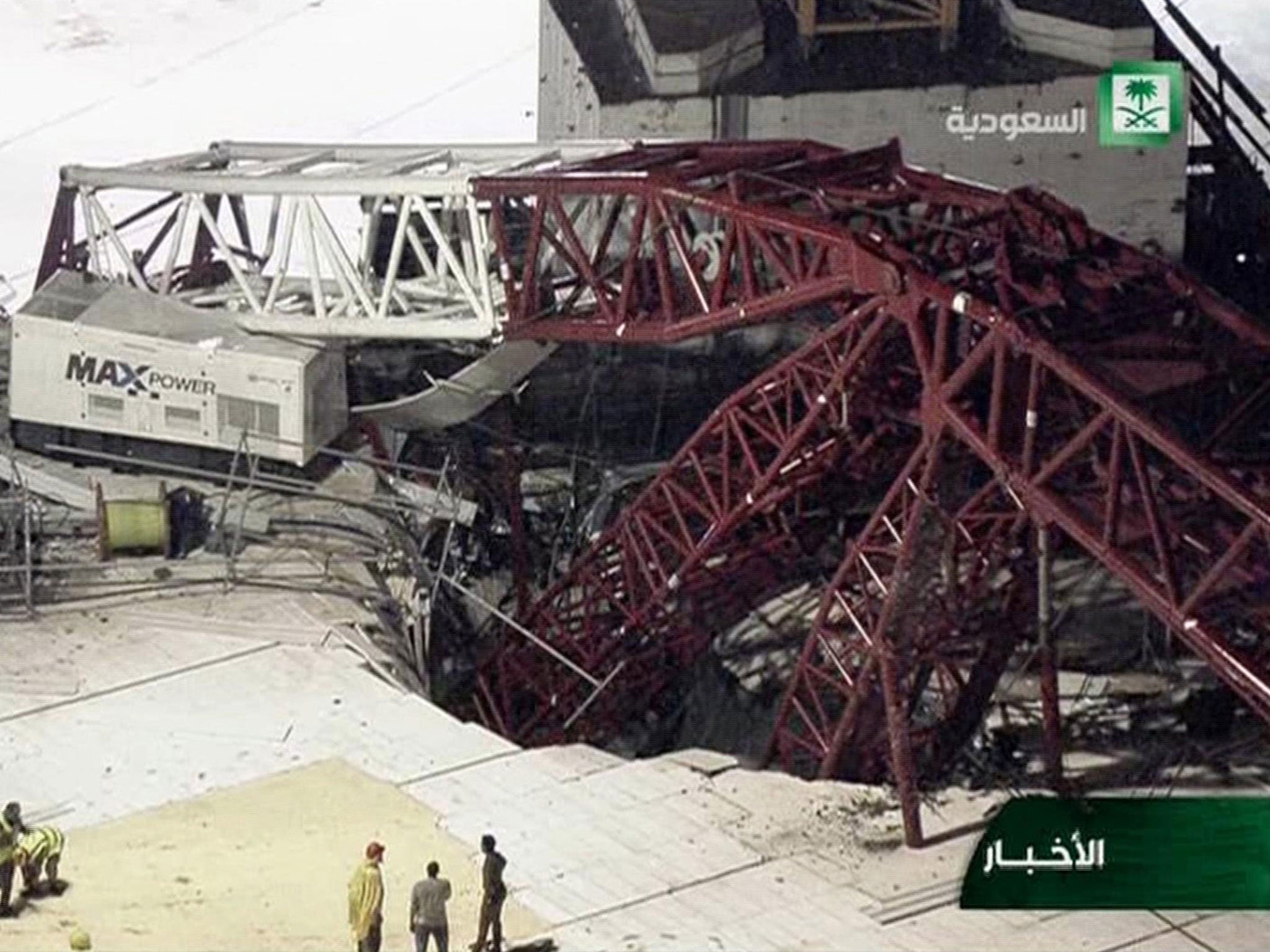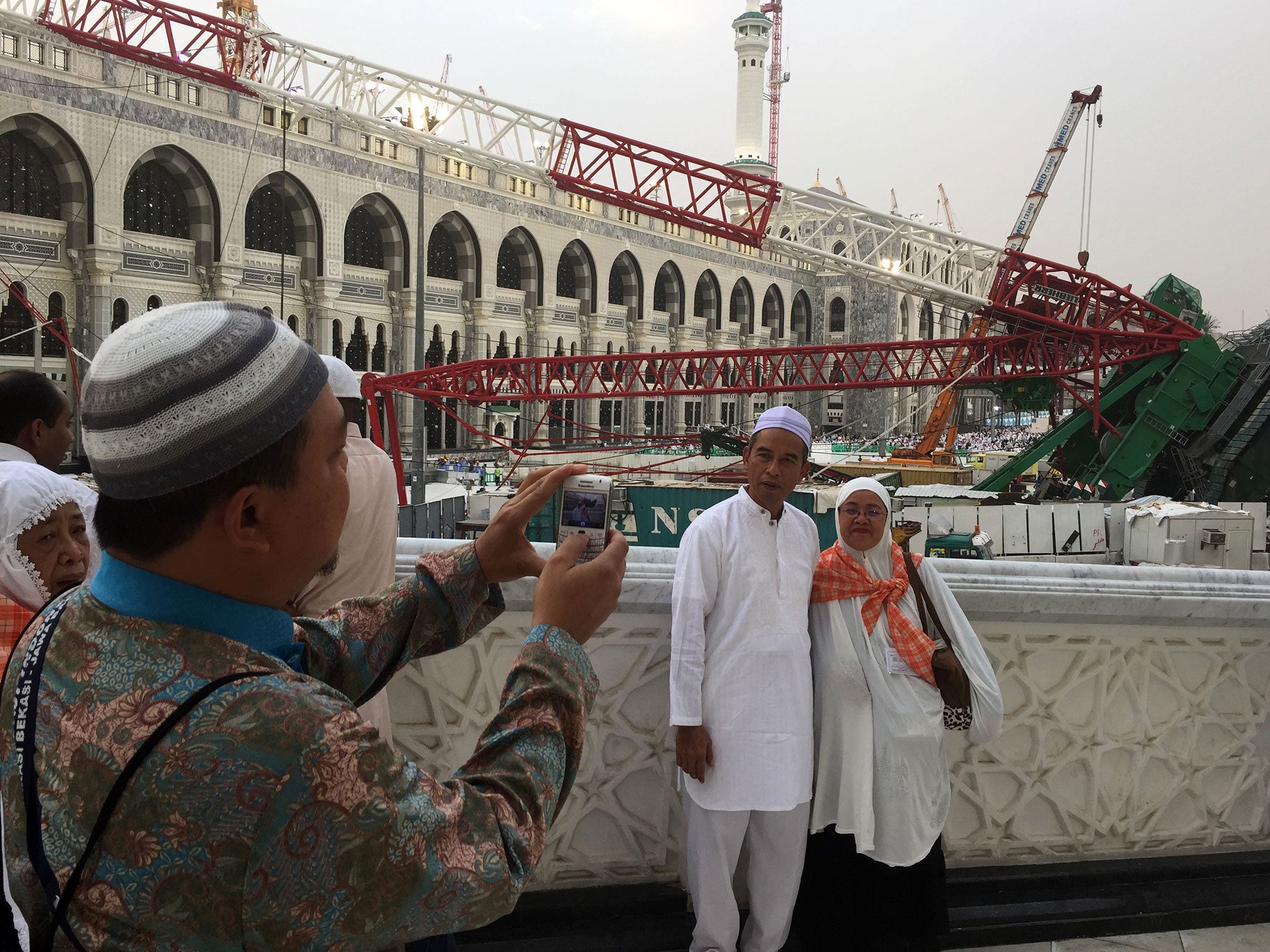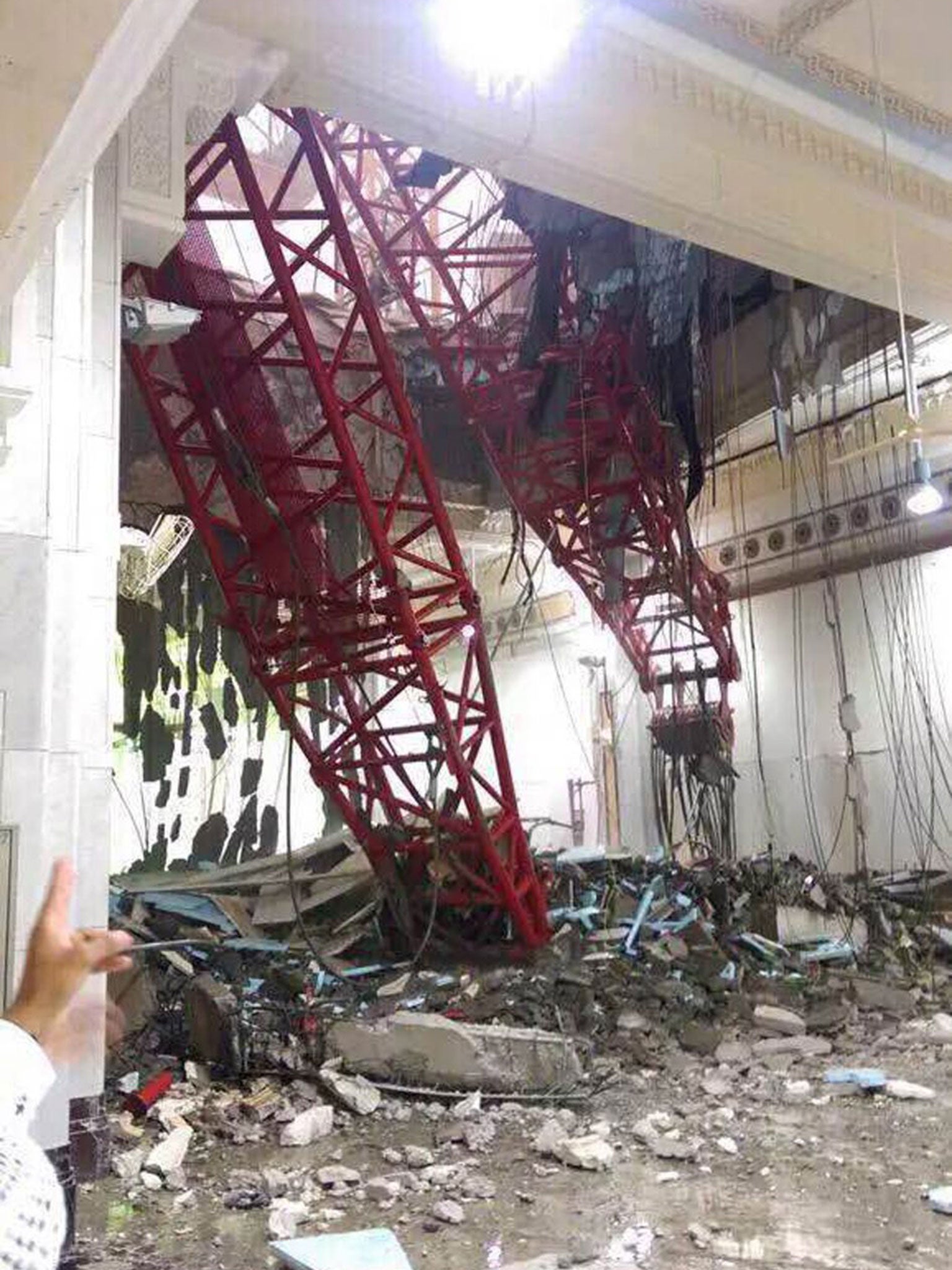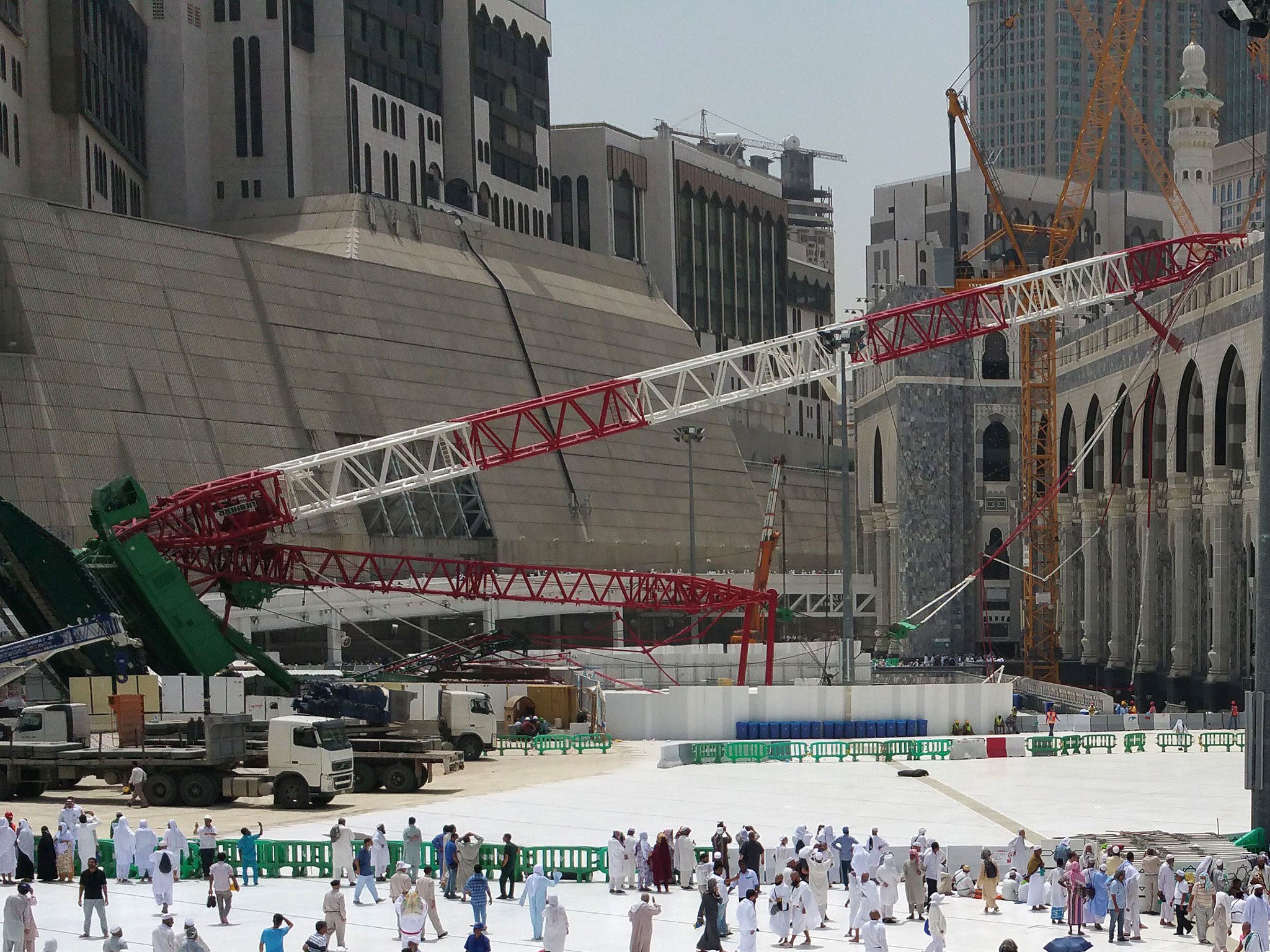Mecca crane collapse: Deadly accident at Grand Mosque 'a blessing in disguise for those killed'
British Muslim leader says that dying while on the hajj is a 'great honour from God' for the 107 people who lost their lives

Your support helps us to tell the story
From reproductive rights to climate change to Big Tech, The Independent is on the ground when the story is developing. Whether it's investigating the financials of Elon Musk's pro-Trump PAC or producing our latest documentary, 'The A Word', which shines a light on the American women fighting for reproductive rights, we know how important it is to parse out the facts from the messaging.
At such a critical moment in US history, we need reporters on the ground. Your donation allows us to keep sending journalists to speak to both sides of the story.
The Independent is trusted by Americans across the entire political spectrum. And unlike many other quality news outlets, we choose not to lock Americans out of our reporting and analysis with paywalls. We believe quality journalism should be available to everyone, paid for by those who can afford it.
Your support makes all the difference.The collapse of a crane at the Grand Mosque in Mecca was not a disaster but “a blessing in disguise” for the 107 people killed, according to a British Muslim leader.
A father-of-four from Bolton was among those killed when a crane operated by the Saudi government crashed into the mosque on Friday ahead of the start of the annual hajj pilgrimage.
Dr Hojjat Ramzy, an imam and director of the Oxford Islamic Information Centre, said he was “very saddened” to hear about the deaths and offered condolences to the families of those killed.
“But in the same breath, I would like to congratulate those people who lost their lives for going straight to heaven without any question,” he said.
“This is great honour from God that every one wishes for but not many will be granted.”
Dr Ramzy said that, according to the Koran, “there is no reward for the accepted hajj except paradise”, and added: “Many Muslim pilgrims wish to pass away during the journey of hajj and to have honour of being buried in the holy city of Mecca.”
The Saudi King Salman has promised a public inquiry into the cause of the crane collapse, which also injured at least 238 people. Officials have defended safety measures at the construction site, and said the accident occurred during a fierce thunderstorm.



The incident has not stopped people from making the journey to the Grand Mosque, where visitor numbers always surge significantly ahead of the hajj. Official figures suggest nearly 910,000 pilgrims have already arrived in Saudi Arabia for this year’s pilgrimage season.
Some visitors took pictures with the huge crane, which was still yet to be cleared away. One pilgrim from Egypt, named Mohammed Ibrahim, told the AFP News Agency: “I wish I had died in the accident, as it happened at a holy hour and in a holy place.”
Tributes were paid on Sunday to Bolton man Qasim Akram, who died in the crane accident just hours after arriving in Mecca for his first hajj.
Friend and local councillor for the Halliwell ward in Bolton, Councillor Akhtar Zaman said he had seen Mr Akram only days before his death, which he described as “a huge loss to the family and a big loss for the wider community”.
On the Masjid Al Aqsa mosque's Facebook page a picture of Mr Akram was shared with the message: “We share not only the picture but also the pain and grief of his departure from this world to the eternal abode of bliss.”
Bolton MP Yasmin Qureshi tweeted: “Saddened to hear that a young man from Bolton was amongst those killed in tragic Saudi crane collapse. Thoughts and prayers [with] the family.”
King Salman and the imam of the Grand Mosque visited some of those injured in the accident on Saturday evening and Sunday. The king was accompanied by his son, Deputy Crown Prince Mohammed Bin Salman.
Many of those in hospital face the prospect of being unable to begin this year’s pilgrimage when it starts around 22 September. Grand Mosque imam Sheikh Abdul Rahman al-Sudais told the injured pilgrims that they would be spiritually rewarded for the intention to perform the hajj even if they were physically unable to take part.
Join our commenting forum
Join thought-provoking conversations, follow other Independent readers and see their replies
Comments